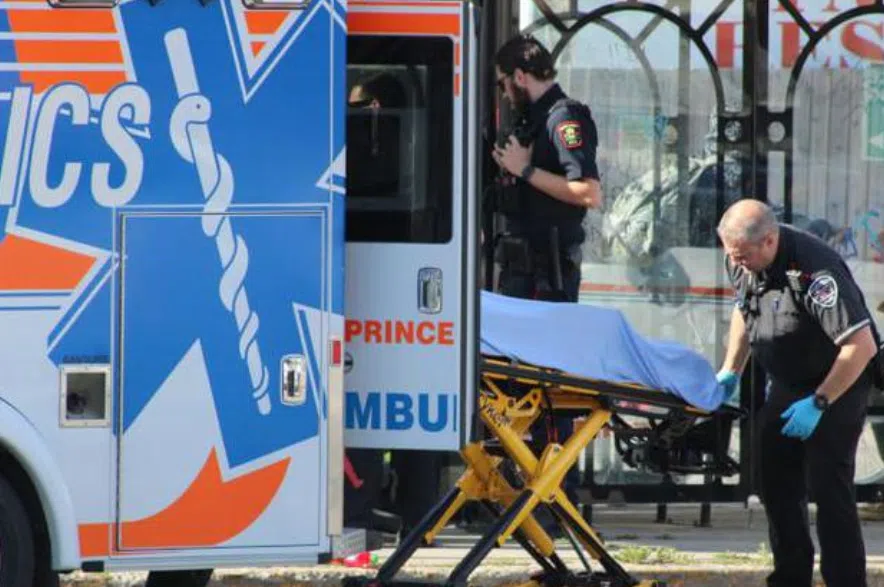by Susan McNeil
Twice as many people in Prince Albert die of drug overdoses as the provincial average, a concerning statistic that is leading to a new response.
On Monday, city council will be presented with a plan that includes $3.6 million in federal and some local funding to create a mobile complex needs team to address the problem.
Read more:
- Dangerous drugs found in Saskatoon, Sask. health ministry warns
- ‘This is not a warning’: 47 overdoses within three days, says NDP
- Prairie Harm Reduction recognizes overdose deaths in online tribute
“Prince Albert’s overdose death rate is twice that of the provincial average. To date, our response to this as a community has been largely reactive due to resource constraints,” reads the proposal that council will see on their Monday agenda.
Called the Overdose Prevention Team, the new service would include community safety officers (CSO) from the Prince Albert Police, medics from Parkland Ambulance and workers from the Mobile Crisis Unit.
The $3.6 million will help buy a dedicated vehicle for the police that will include all the necessary safety equipment and the staff for patrol coverage.
Parkland Ambulance will also provide a van, staff and medical equipment 24 hours per day, using the same funding.
The team will be expected to maintain a constant mobile presence that can assess and treat people in the field, triage patients and take them to appropriate health and social services.
Mobile Crisis will use their allocation to provide a wheelchair-accessible counselling van and salaries for workers and a supervisor.
They will provide counselling on-site, connect clients with health and housing support and increase access to substance use treatment services.
For the city’s part, the Community Safety and Well-being Division will oversee the startup of the project and monitor it for impact.
One of the goals is to streamline services that are already available locally. To save time, any member of the team can initiate a response rather than contacting the three services separately.
Using CSOs rather than full police officers means constables can spend more time on emergency calls instead of dealing with what are mainly people having an extreme addiction or mental health episode.
At the same time, Parkland’s involvement is likely to reduce emergency room visits that could be avoided with earlier intervention
Mobile Crisis’s inclusion will hopefully help clients seek help that might not have done it on their own, leading to a more proactive approach.
P.A. had 51 overdose deaths between 2020 and 2023
According to data shared in the council agenda package and sourced from the Saskatchewan Coroner’s Service, Prince Albert had 51 overdose deaths between 2020 and 2023, a death rate of 32 per 100,000 people.
By comparison, the provincial equivalent is an average of 16 deaths per 100,000.
The funding is coming from Health Canada which, last year, created a $150 million fund for municipalities and Indigenous communities to deal with overdose risk.
The priority was given to communities that could act quickly.
The new team marks yet another prong in the local response to what could be seen as one of Canada’s most drug-ridden cities. Two years ago, wastewater testing showed Prince Albert to have the highest cocaine and meth load in wastewater in all of Canada.
Complex needs shelter also considered
At Monday’s meeting, council will also deal with a development permit for a permanent emergency shelter for homeless people and is also working with the province to create a complex needs shelter.
The complex needs shelter is expected to go in the old SLGA building downtown and will house up to 15 people experiencing drug or mental health crisis placed on a 24 hour hold.
Unlike the homeless shelter, the complex needs shelter will be a secured facility vaguely similar to a police holding cell but with mental health and housing support provided.
That service is planned to be operational by March 2026.
Before the program can go ahead, city council must pass a motion in favour of it.
Read more:











